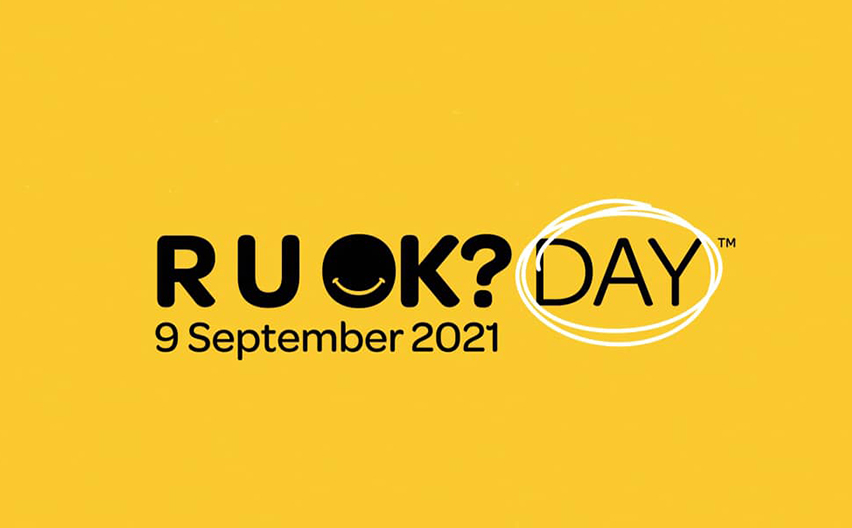


R U OK? Day is an annual nation-wide event, promoted by the Australian non-profit suicide prevention organisation, R U OK?. This day encourages connection by prompting us to check in with each other, centring itself around the concept that a conversation can change a life.
As Victoria endures its sixth lockdown, this day is as relevant as ever, reminding us how we can both support and be supported during this time.
Here, members of the Trinity College Wellbeing Committee, Celia Purvis, Eleanor Lawton-Wade and Kathy Kim, offer their insights into the importance of R U OK? Day, and their experience with this integral question.
What is your understanding of R U OK? Day?
Celia: For me, R U OK? Day comes as a reminder of the importance of having meaningful conversations with those around us. At the end of the day, as hard as we may try, it is near impossible to keep up with the constant emotions that may be circling around in the heads of those around us. One minute your friend may seem happy and bubbly, the next nervous and worried.
The power of the phrase ‘are you okay?’ lies in its universal ability to unpack any emotion of any level of severity. I have found that by going out of your way to ask those around you how they are feeling, you allow for vulnerability, and therefore strengthen your connection with them tenfold. Stronger relationships amongst all at Trinity will lead to a more trusting and comfortable living environment for everyone.
What I love most about ‘R U OK Day’ is that our society spends 24 hours attempting to de-stigmatise the frightening prospect of dealing with challenging emotions; essentially working to deconstruct said barriers.
Why is asking each other ‘are you okay’ important in our community?
Eleanor: Asking ‘are you okay?’ is a fantastic way to start a conversation about mental health and wellbeing. The question is deceptively simple, beautifully unthreatening and, yet, incredibly powerful in its ability to open up conversation.
For me, the question is important because a culture of wellbeing and care is about a continuous commitment to the wellbeing of yourself and others, rather than having to engage in the, often harder, task of dealing with larger issues of wellbeing when they arise.
I think it is really important that we remember the sentiment behind asking ‘are you okay?’ is one that we need to carry with us at all times and that these words aren't spoken as empty phrases uttered as a form of 'virtue signalling', but as part of an honest and whole-hearted attempt to check in with yourself and your friends. Asking ‘are you okay?’ is a really simple way to start some bigger more complex conversations.
Can you think of a moment in your life when the question ‘are you okay’ really helped you, or helped someone else, if you were the one asking it?
Kathy: At college, it’s noticeable when you haven’t seen someone around in a while, so I make the effort to catch up with them and ask if they’re okay, even just in a subtle way. I think it lets the person know that you genuinely care about their experiences and allows you to stay close to old friends if it slips your mind to make time for them every day. From my experience, asking ‘are you okay’ has brought me closer to friends and established a positive dynamic of checking up on one another frequently.
Eleanor: I've had a friend thank me for asking ‘are you okay?’ before, which is a deeply humbling experience. I think, in this case, the question was powerful because, while we are all very good at spitting out a generic ‘good thank you’ upon being asked something menial like ‘how was your day?’, asking ‘are you okay?’ is slightly harder to deflect. The challenge with asking ‘are you okay?’ is that you, yourself, need to feel as if you are empowered and capable of dealing with the consequences if someone says ‘no’.
In this case, I was incredibly lucky to be surrounded by a community where I felt I could direct my friend to professional help but also where I felt I could offer my help as an ear to listen and a shoulder to cry on. It was after this experience that I began to make a conscious effort to make the question ‘are you okay?’ part of my daily vernacular and commitment to kindness and care within the community I am within. I think ‘are you okay?’ is an important reminder to check in with your mates but, also, a wonderful invitation to accept care, respect and kindness as part of our daily practice.
For more information, including links to referral support services, visit ruok.org.au
As told to Eddie Jackson
